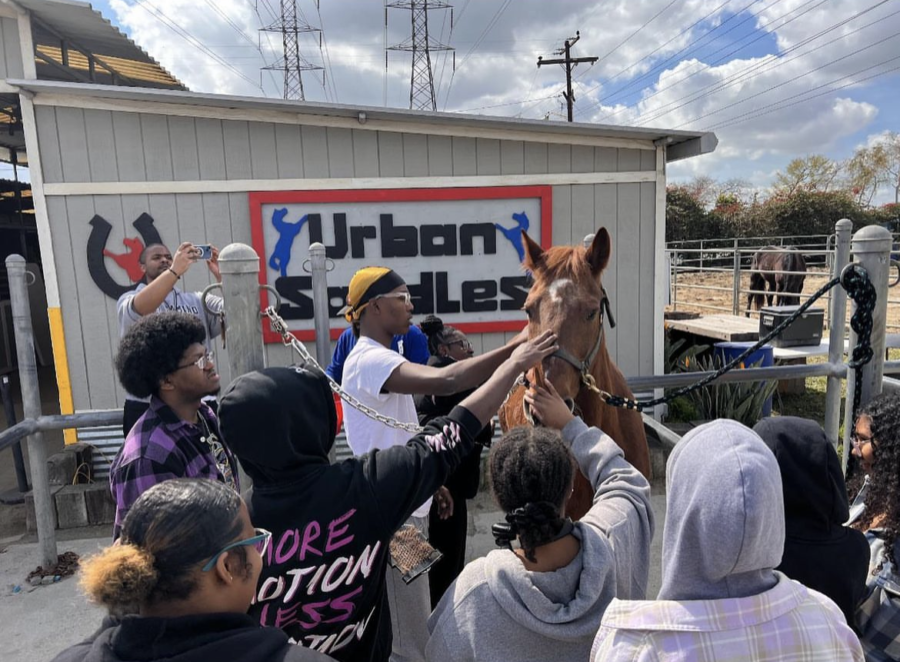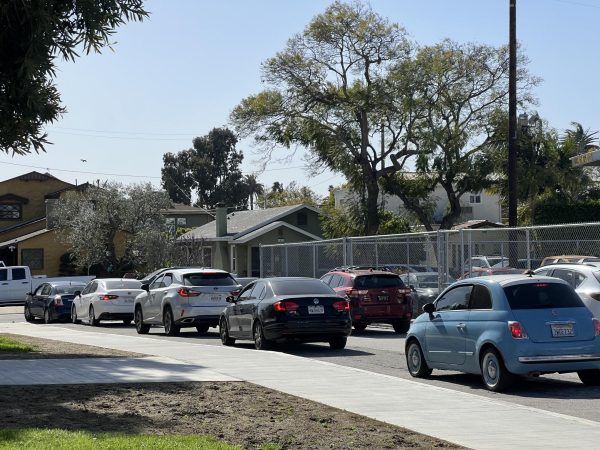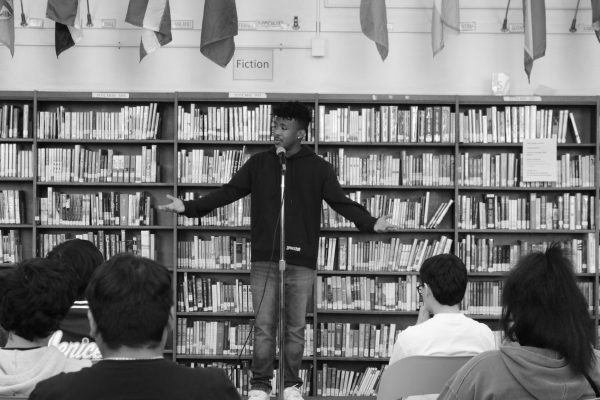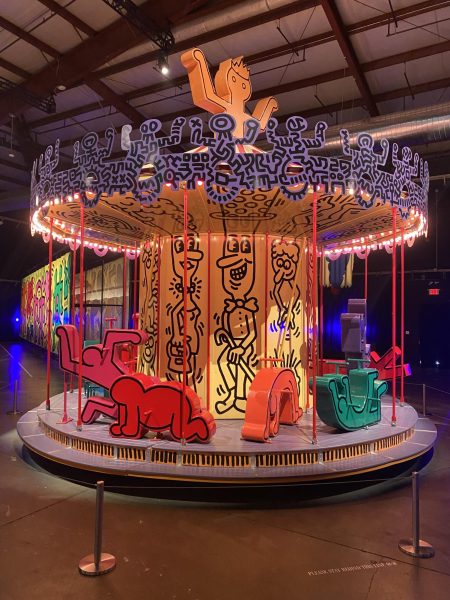BSAP Students Take A Trip To Urban Saddles
April 17, 2023
Last month, myself and about 30 other BSAP students went on a field trip to Urban Saddles, a black-owned horse ranch on the outskirts of South Central L.A. Students had the opportunity to learn about what goes into being a cowboy– including activities like washing and brushing the horses’ coats, cleaning out the stables, learning how to saddle up, and even riding.
Also a non-profit organization, Urban Saddles’s goal is “to empower our youth with confidence, integrity, and knowledge.”
Evelyn Knox, BSAP counselor here at Venice, thought that both the chaperones and the kids had a lot of fun.
“It was one of the best field trips I’ve ever been on,” she said.
When we arrived at the stables, we were met with modern-day cowboys in the quintessential wide-brimmed hats and boots. Students first learned about the equipment that cowboys utilize—like a saddle, lead rope, and bit. Then we had the opportunity to clean up the horses’ stables by shoveling feces and laying fresh bedding.
After that, we washed and brushed the horses’ coats and learned how to saddle up.
Personally, this was one of the most unique, fun field trips I’ve ever been on. It was exciting to be around the horses and it was enlightening to see how much work it takes to care for these amazing animals.
“It’s just a really hands-on experience in teaching about the equestrian lifestyle,” Knox said.
Towards the end of the day, we finally had the opportunity to ride the horses. Many students on the trip had never ridden a horse before, making the experience even more special.
“Seeing my students get up and be fearless when riding the horses was super cool for me,” Knox said.
Another extremely meaningful aspect of the trip was the opportunity to support a black-owned business. Although it’s not prevalent in popular culture, African-Americans played an integral role in the history of the American cowboy.
In the 1800s, while the Texas cattle industry was moving West, enslaved Africans became skilled at the task at tending the herds. Historians estimate that one out every four cowboys were black, but you wouldn’t know it looking at Western films and television shows today.
Supporting black-owned horse ranches like Urban Saddles keeps that history alive.
Also, supporting these ranches helps to bring younger generations of kids into the cowboy lifestyle. Urban Saddles host many community events, including a Saddlers program and outdoor western events.
“I’m thinking of taking my nephew,” Knox said.





